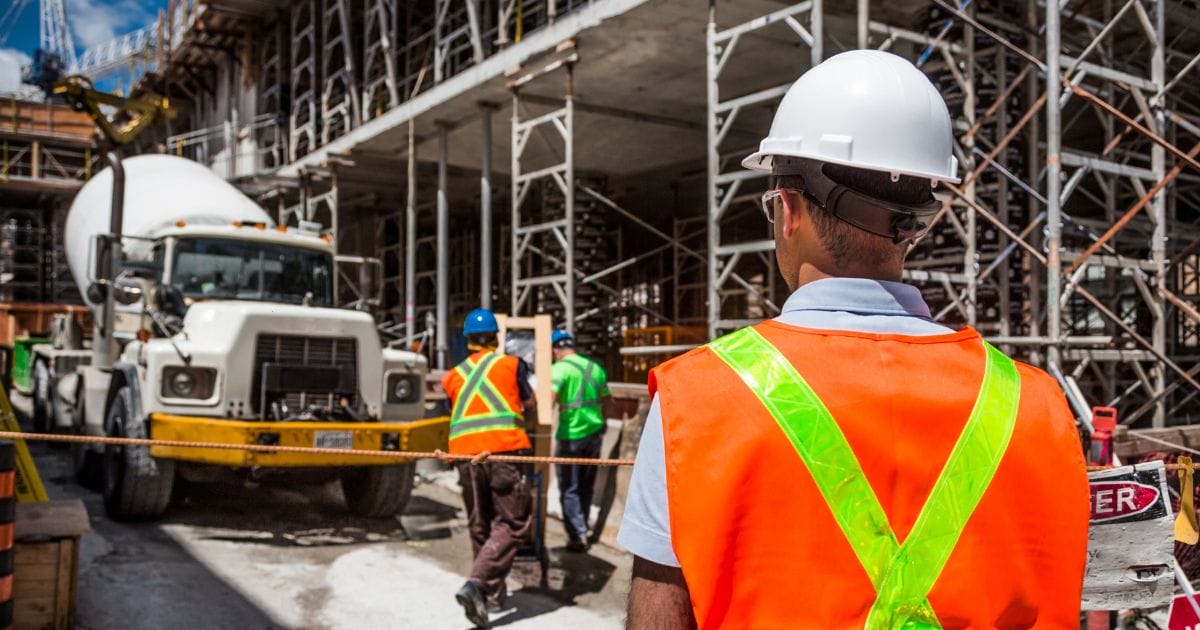The U.S. Equal Employment Opportunity Commission (EEOC) at a recent Congressional hearing in Washington, D.C. said discrimination against women and minorities is running rampant in the construction industry.
The statement echoes what many Blacks across the country know and fought against for decades as cities and neighborhoods experience a boom of lucrative development projects.
At the May 17 hearing before lawmakers, the EEOC examined severe and pervasive discrimination in the construction sector. It also examined how to expand opportunities for historically marginalized workers in the industry.
“The construction sector has always been an important component of the American economy, as a major employer of America’s workers, a pathway to prosperity and security, and a key indicator of the nation’s health,” said EEOC Chair Charlotte A. Burrows.
“Unfortunately, many women and people of color have either been shut out of construction jobs or face discrimination that limits their ability to thrive in these careers.”
Burrows pointed out further that “Discrimination and harassment in construction can be especially harsh and virulent, including displays of nooses; threats and physical harassment; and sometimes physical or sexual assaults. Yet, often workers do not know where to go to seek help. Today’s hearing shed light on innovative promising practices to address discrimination and increase diversity in this crucial industry.”
The EEOC heard from a wide range of witnesses with expertise on the challenges faced by people who do not fit the usual demographics in the traditionally white and male-dominated construction industry.
Dr. Trevor Griffey, lecturer in U.S. History at the University of California at Irvine, said,
“The history of attempts to desegregate skilled construction trades demonstrates that there’s more to the desegregation of an industry than simply being hired: workplace culture also has to change.
“Today, as the federal government is substantially reinvesting in U.S. infrastructure projects, it is an important time to revisit the lessons of this history to ensure that federal government spending continues the work of providing equal opportunity for all workers.”
Kenneth D. Simonson, chief economist of the Associated General Contractors of America, pointed out, “Construction associations and member companies are taking a number of steps to make more students, jobseekers and individuals not currently in the labor force aware of the opportunities that construction offers and to provide a more welcoming and inclusive work environment.”
He also called for more funding for career and technical education to end a “higher education bias” in federal funding.
Janel Bailey, co-executive director of organizing and programs of the Los Angeles Black Workers Center, said, “It isn’t mysterious that the EEOC called for a hearing regarding the trades specifically. The current situation didn’t fall from the sky. This is the result of exclusive policies that have shaped the cultures of the industries and their unions. The good news is that we can choose to move away from that legacy, and it must be in partnership with Black workers and other workers who have been left out.”
Gary, an ironworker from Alabama who testified at the hearing said, “Harassment on construction jobs is just not right. Construction is hard, dangerous work. It takes you away from your family. But you can do well if you work hard, learn your job, and do the job right. But you can’t provide for your family and keep yourself safe on the job if you are being harassed.”
James Bobseine, trial attorney with the EEOC’s Buffalo Local Office, said, “America’s construction workers do important work that requires skill and perseverance. It is essential that they are able to do their jobs free of discrimination, which makes their jobs harder and undermines the dignity of their labor.”
David Chincanchan, policy director of the Workers Defense Project, said, “We at the Workers Defense Project are fighting against discrimination, harassment, and wage theft in the Texas construction industry.
“Our members take on this work, despite facing threats of retaliation, because they know from personal experience how urgently change is needed. We understand that change will only happen if workers are able to speak out against injustice.
“We ask the federal government to take meaningful steps not just to hold abusive employers accountable but to protect workers who come forward to denounce these abuses – regardless of race, gender-identity, immigration status or any other characteristic on which employment discrimination is based.”
Japlan “Jazz” Allen, an ironworker, and treasurer of Chicago Women in Trades said, “As an ironworker with 21 years in the trades, making $54.63 an hour, and a benefit package with full health insurance and a pension, I know that the construction trades can offer women economic security.
“But these good wages are all too often offset by significant and persistent barriers beyond just getting into the field. Twenty-one years after I began my career, and 40 years after Chicago Women in Trades’ founding, I know too many tradeswomen – especially women of color – who are still struggling to stay in their careers, or who are seriously considering leaving the trades.
“I’m testifying today with the hopes that the challenges that drive women out of the industry – inequities in hiring and on-the-job training, and a workplace culture that can too often be hostile, intimidating, unwelcoming, and unsafe – will be taken seriously and addressed by not only the EEOC and other public agencies, but by our industry itself.”






